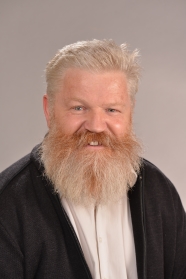AI & Fundamentals
Polynomial acceleration of Gibbs sampling (from probability distributions) - Colin Fox, Associate Professor, University of Otago

DATE: Fri, November 22, 2019 - 4:00 pm
LOCATION: MacLeod (MCLD) - 254, 2356 Main Mall, Vancouver, BC
DETAILS
Abstract:
The standard Gibbs sampler (a.k.a. Glauber dynamics and local heat-bath thermalization) is essentially identical to Gauss-Seidel iteration, when applied to Gaussian target distributions. This explains the slow (geometric) convergence of the Gibbs sampler, but also indicates how to accelerate using polynomials. Polynomial acceleration of MCMC is simple in concept, and can be used to explicitly construct an accelerated Gibbs sampler for Gaussian-like distributions, giving optimal convergence rates. The past few years have seen development of a number of other sampling algorithms based on Krylov space and quasi-Newton optimization algorithms that achieve spectacular performance in some settings. (Joint work with Al Parker and Richard Norton).
Bio:
Colin Fox completed his BSc in Physics and Pure Mathematics, then his MSc in Physics (on building acoustics), at The University of Auckland, while running an electronics design company. He completed his PhD in the Cavendish Laboratory of Cambridge University, in the group lead by Steve Gull, John Skilling, and Ed Jaynes. After 18 months implementing his PhD findings for Schlumberger Cambridge Research, he took a post-doctoral position with Vernon Squire in Applied Mathematics at Otago University. From 1990 to 2007 he grew the Applied Mathematics programme at Auckland University, was concurrently Head of the Acoustics Research Centre for 12 years, undertook field work on the sea-ice in Antarctica for a dozen seasons, held visiting positions at Le Mans France (Acoustics), CIMAT Mexico (Probability and Statistics), Clarkson USA (Engineering), Cambridge (Engineering), and Kuopio Finland (Physics), and was seconded on two occasions to Agilent Technology (Palo Alto and Colorado) to undertake research for product development. In 2007 he moved to Otago University to the Electronics research group within the Physics department.
CAIDA Contact:
Arynn Keane
arynnk@mail.ubc.ca